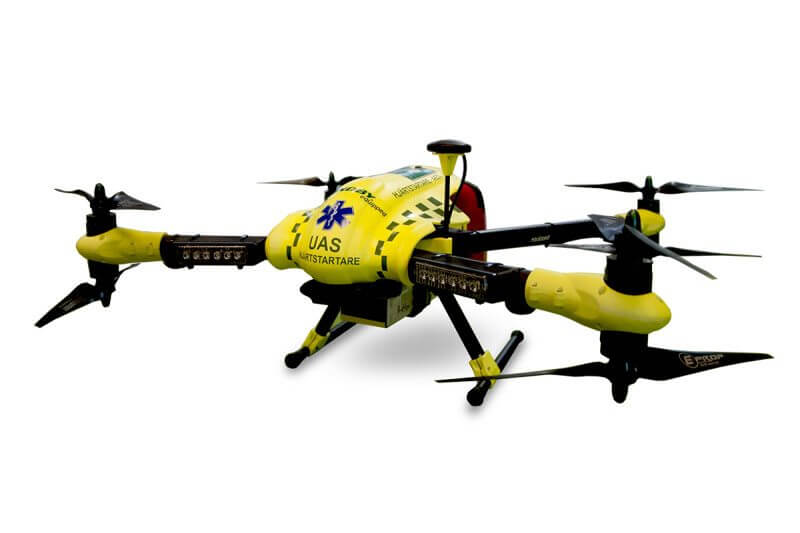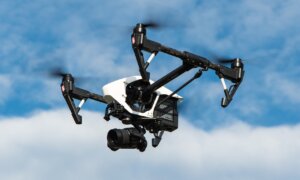Researchers at the Karolinska Institute in Sweden want to employ drones for medical assistance. They believe UAVs can arrive faster at the place of an incident than most ambulances #actionmagic
Cardiac arrest statistics are worrying. In Sweden, about 10 000 people a year suffer a cardiac arrest and only 10-28% survive. Lack of equipment and medical knowledge are partly to blame for that. Ambulances can take up to 30 minutes to get to the scene, decreasing drastically the affected person’s chances to live. So researchers from the Karolinska Institute wondered if drones couldn’t get faster to the person and by carrying a defibrillator, get him the help needed.
First, their analysis of the cardiac arrest records for areas outside of Stockholm showed that the median response time was almost 30 minutes. So, the team dispatched a drone with a defibrillator and speaker (for CPR instructions) to such locations. After 18 trial flights, the drone cut down the response time to just five minutes. To verify their findings, the researchers asked ambulances to make the same trips. Their average time to get to a location was 22 minutes.
These positive results convinced the team to reach out to local emergency services and ask their help to implement the drone program. In two years, the first CPR UAVs will start saving lives.
Follow TechTheLead on Google News to get the news first.

























